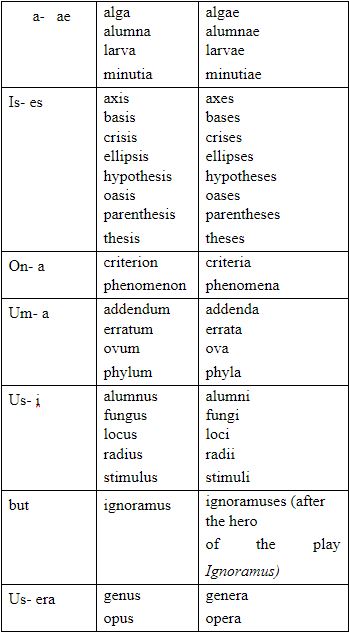- Services
- Discovery & Intelligence Services
- Publication Support Services
- Sample Work

Publication Support Service
- Editing & Translation
-
Editing and Translation Services
- Sample Work

Editing and Translation Service
-
- Research Services
- Sample Work

Research Services
- Physician Writing
- Sample Work

Physician Writing Service
- Statistical Analyses
- Sample Work

Statistical Analyses
- Data Collection
- AI and ML Services
- Medical Writing
- Sample Work

Medical Writing
- Research Impact
- Sample Work

Research Impact
- Medical & Scientific Communication
- Medico Legal Services
- Educational Content
- Industries
- Subjects
- About Us
- Academy
- Insights
- Get in Touch
- Services
- Discovery & Intelligence Services
- Publication Support Services
- Sample Work

Publication Support Service
- Editing & Translation
-
Editing and Translation Services
- Sample Work

Editing and Translation Service
-
- Research Services
- Sample Work

Research Services
- Physician Writing
- Sample Work

Physician Writing Service
- Statistical Analyses
- Sample Work

Statistical Analyses
- Data Collection
- AI and ML Services
- Medical Writing
- Sample Work

Medical Writing
- Research Impact
- Sample Work

Research Impact
- Medical & Scientific Communication
- Medico Legal Services
- Educational Content
- Industries
- Subjects
- About Us
- Academy
- Insights
- Get in Touch

- Services
- Discovery & Intelligence Services
- Publication Support Services
- Sample Work

Publication Support Service
- Editing & Translation
-
Editing and Translation Services
- Sample Work

Editing and Translation Service
-
- Research Services
- Sample Work

Research Services
- Physician Writing
- Sample Work

Physician Writing Service
- Statistical Analyses
- Sample Work

Statistical Analyses
- Data Collection
- AI and ML Services
- Medical Writing
- Sample Work

Medical Writing
- Research Impact
- Sample Work

Research Impact
- Medical & Scientific Communication
- Medico Legal Services
- Educational Content
- Industries
- Subjects
- About Us
- Academy
- Insights
- Get in Touch

Plurals
The norms for plural construction are covered in all of the significant style books. To supplement such talks, here are additional explanations and points to copy editors.
Common nouns. For the manuscript correction spelling of common nouns and their plurals, see your dictionary. Nouns ending in/(halves, leaves, wolves, but roofs), info (knives, lives, spouses, but safes), or in o (echoes, heroes, potatoes, but egos, embryos, and portfolios) are the most vulnerable to create problems. Whether your dictionary provides two plurals for a common word, read the entire item to see whether the two forms are used differently.
- For example, staff has two plurals: Staffs are used to represent groupings of people, but staves are used to represent musical notation; indexes are alphabetical listings, while indices are mathematical expressions; and mediums are people who claim to have paranormal skills but media are creative materials. Furthermore, while some dictionaries list appendixes and appendices as synonyms, many journal publishers prefer appendixes to denote the book’s back sections.
Other issues arise when borrowing nouns from classical languages and naturalizing them into English. In M-W Collegiate, the regular and irregular plural forms of several of these nouns are classified as equal variants: millennia or millenniums and memoranda or memorandums. The words listed below always have a Latin or Greek plural.
Certain Latin and Greek borrowings’ single or multiple characters continue to split opinions. Other disagreements concern insignia (the Greek plural of insigne, but often treated as a singular in English and given the English plural insignias) and media (plural in Latin, but often treated as a singular in phrases such as “the print media”). The example of kudos, a single word in ancient Greek, is a little more perplexing. English people produced a solitary form (kudo) and began to consider kudos as a plural sometime in the 1940s, assuming that the ending s signified a plural. Both forms are found in M-W Collegiate, which maintains the singular as an example of a back-formation.
Compound nouns. A hyphenated compound noun’s plural is usually produced by adding 5 to the compound noun member: sisters-in-law and courts-martial. However, the plurals of solid compounds are consistent: handfills, spoonfuls, tablespoonfuls, and teaspoonfuls. In open compounds, the primary word should be pluralized: lawyers general. When in doubt, look it up in the dictionary.
Proper nouns. The plural of most proper nouns is regularly formed:
- The property is owned by the Arroyos, the Bachs, the_ Beaches, and the Roths.
Abbreviations and initialisms. The majority of proofreading abbreviations and initialisms are pluralized by adding a s: vols., I.D.’s, C.D.’s, H.M.O.’s. When a publisher’s style requires initialisms to be followed by internal periods, an’s is appended to produce the plural: H.M.O.’s. An’s is also added to produce the plural of an abbreviation that has internal periods: M.D.’s. In professional writing, such plurals are rarely used; in most circumstances, a copyeditor would use the spelled-out form:
Overly colloquial: She has two M.A. s.
Better: She has two master’s degrees.
But: A panel of M.B.A.’s gave their opinions of the new auditing
procedures.
Letters of the alphabet. Some letters can be made plural by adding an s (the three Rs), but often an apostrophe is needed:
How many students received A’s?
Are all the i’s dotted and the t’s crossed? Mind your p’s and q’s.

Give yourself the academic edge today
Each order includes
- On-time delivery or your money back
- A fully qualified writer in your subject
- In-depth proofreading by our Quality Control Team
- 100% confidentiality, the work is never re-sold or published
- Standard 7-day amendment period
- A paper written to the standard ordered
- A detailed plagiarism report
- A comprehensive quality report


